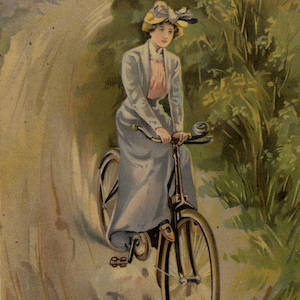Slavery

Advertisement for Sale of Newly Arrived Africans
This image is of an advertisement for a nearly equal number of adults and children from Sierra Leone at a Charleston Auction.

African American Women Writers of the 19th Century
Students might examine how the inclusion of African American women's perspectives alters more standardized narratives of American history.Laws and Regulations Respecting Slaves at the Colony the Cape of Good Hope
Although marriage was not forbidden between Europeans and slaves or other non-Europeans, it was quite rare and entailed a drop in social status for the European. Nevertheless, sexual relationships occurred—sometimes coerced, sometimes by mutual agreement.
Slave Women and Children
Although marriage was not forbidden between Europeans and slaves or other non-Europeans, it was quite rare and entailed a drop in social status for the European. Nevertheless, sexual relationships occurred—sometimes coerced, sometimes by mutual agreement.

Emory Women Writers Resource Project
The subjects covered are diverse and include commentaries on such topics as nature, native-white relations, emancipation, imperialism, social and sexual mores, wet nursing, Christianity, and women’s suffrage.
New York Public Library Digital Collections
The NYPL Digital Collection provides access to over 755,000 images digitized from primary sources and printed rarities, including illuminated manuscripts, vintage posters, illustrated books, and printed ephemera.Decree of the National Convention of 4 February 1794, Abolishing Slavery in all the Colonies
News traveled slowly from the colonies back to France, and the first word of the emancipations in Saint Domingue aroused suspicion if not outright hostility in the National Convention.

In Motion: The African-American Migration Project
In Motion: The African-American Migration Project portrays the history of 13 defining migrations that formed and transformed African Americans from the 16th century to the present.Society of the Friends of Blacks, "Address to the National Assembly in Favor of the Abolition of the Slave Trade" (5 February 1790)
The Society of the Friends of Blacks rested their case for the abolition of the slave trade on the Declaration of the Rights of Man and Citizen and the belief that political rights should be granted to religious minorities.
The Abolition of Negro Slavery or Means for Ameliorating Their Lot, 1789
The passage of the Declaration of the Rights of Man and Citizen, explicitly cited in this pamphlet, did not go unnoticed by those who favored abolition of the slave trade and eventual emancipation of the slaves.